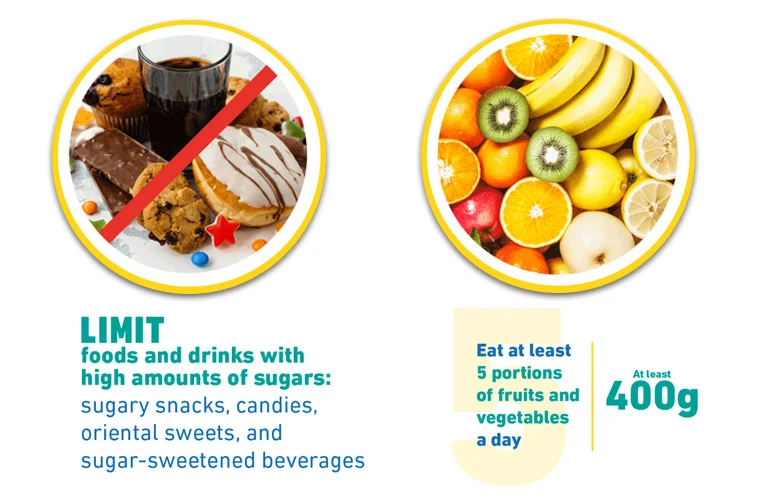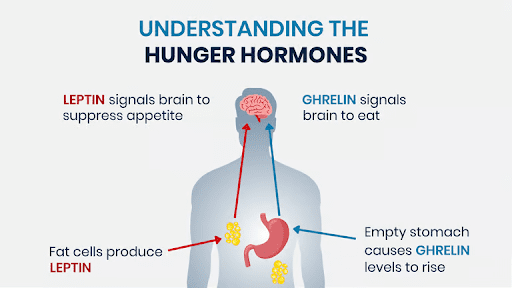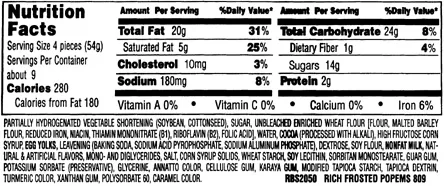Contents
- 1 The Latest Evidence and Scientific Recommendations on the Health Benefits of Reducing Sugar in Your Diet
- 2 Prof. Aécio D’Silva, Ph.D AquaUniversity
- 3 What is sugar and how does it affect your body?
- 4
- 5 What are the benefits of reducing sugar from your diet?
- 6 Reducing sugar intake and enjoying a low-sugar diet?
- 7
- 8 How much sugar should You consume per day?
- 9 How can I reduce my sugar cravings?
The Latest Evidence and Scientific Recommendations on the Health Benefits of Reducing Sugar in Your Diet
Prof. Aécio D’Silva, Ph.D
AquaUniversity
Sugar is a sweet but harmful substance that can affect your health in many ways. Learn how to reduce your sugar intake and enjoy the benefits of a low-sugar diet

Reducing Sugar – Sugar is one of the most commonly consumed substances in the world. It is found naturally in fruits, vegetables, and dairy products, as well as added to processed foods and drinks. Sugar provides energy and pleasure to our taste buds, but it also has many negative effects on our health. Too much sugar can cause weight gain, tooth decay, inflammation, diabetes, heart disease, and more. In this blog post, we will explore what sugar does to your body, and what are the benefits of reducing sugar in your diet. We will also share some tips on how to reduce your sugar intake and enjoy a healthier lifestyle. (1)

What is sugar and how does it affect your body?
Sugar is a type of carbohydrate that is composed of simple molecules called monosaccharides. The most common monosaccharides are glucose, fructose, and galactose. These molecules can combine to form more complex carbohydrates, such as sucrose (table sugar), lactose (milk sugar), and maltose (malt sugar). When we eat sugar, it is broken down into monosaccharides by enzymes in our mouth, stomach, and intestines. These monosaccharides are then absorbed into the bloodstream, where they are transported to different cells and tissues. Some of the sugar is used for immediate energy, while some is stored as glycogen in the liver and muscles. When the body needs more energy, it can convert glycogen back into glucose and release it into the blood.
However, when we eat too much sugar, especially added sugar, the body cannot use or store it efficiently. This leads to several problems, such as:
- High blood sugar levels. Eating too much sugar can cause a spike in blood sugar levels, which triggers the release of insulin, a hormone that helps lower blood sugar levels by moving glucose into cells. However, if the cells are already full of glucose, they become resistant to insulin, and the excess glucose remains in the blood. This can cause damage to the blood vessels, nerves, and organs, and increase the risk of diabetes and other metabolic disorders.

- Weight gain and obesity. Eating too much sugar can also contribute to weight gain and obesity, as sugar provides empty calories that do not satisfy our hunger or nutritional needs. Sugar also stimulates the production of ghrelin, a hormone that increases appetite, and inhibits the production of leptin, a hormone that signals satiety. This can lead to overeating and excess calorie intake. Moreover, sugar can promote the accumulation of fat in the liver, which can cause fatty liver disease, a condition that impairs the liver’s ability to process glucose and fats.
- Inflammation and oxidative stress. Eating too much sugar can also cause inflammation and oxidative stress in the body, which are linked to many chronic diseases, such as heart disease, cancer, and arthritis. Sugar can activate the immune system and trigger the release of inflammatory cytokines, which can cause swelling, pain, and tissue damage. Sugar can also increase the production of reactive oxygen species (ROS), which are unstable molecules that can damage the DNA, proteins, and lipids in the cells. This can lead to cellular aging and dysfunction.
- Tooth decay and gum disease. Eating too much sugar can also harm your oral health, as sugar feeds the bacteria that cause plaque and cavities. Plaque is a sticky film that covers the teeth and gums and contains acids that erode the enamel and dentin, the hard and soft layers of the teeth. Cavities are holes that form in the teeth due to the loss of enamel and dentin. If left untreated, cavities can cause pain, infection, and tooth loss. Sugar can also cause gum disease, which is an inflammation and infection of the gums that can lead to bleeding, swelling, and receding gums. Gum disease can also affect the bones and tissues that support the teeth and increase the risk of tooth loss and systemic infections.
What are the benefits of reducing sugar from your diet?
Cutting out sugar from your diet can have many benefits for your health, such as:
- Lower blood sugar levels and reduced risk of diabetes. Cutting out sugar can help lower your blood sugar levels and improve your insulin sensitivity, which can prevent or reverse diabetes and its complications. According to a study published in the journal Diabetes Care, reducing sugar intake by 25% for 10 weeks resulted in significant improvements in blood sugar control, insulin resistance, and cholesterol levels in people with type 2 diabetes. (2)
- Weight loss and improved body composition. Cutting out sugar can also help you lose weight and improve your body composition, as you will consume fewer calories and more nutrients from whole foods. You will also reduce the amount of fat stored in your liver and other organs, which can improve your metabolic health and reduce the risk of fatty liver disease. According to a study published in the journal Obesity, reducing sugar intake by 40% for 9 days resulted in significant reductions in body weight, body fat percentage, and liver fat in obese children. (3)
- Reduced inflammation and oxidative stress. Cutting out sugar can also help reduce inflammation and oxidative stress in your body, which can lower your risk of chronic diseases, such as heart disease, cancer, and arthritis. You will also improve your immune system function and your body’s ability to heal and repair itself. According to a study published in the journal Nutrition, reducing sugar intake by 50% for 4 weeks resulted in significant reductions in inflammatory markers, such as C-reactive protein (CRP), interleukin-6 (IL-6), and tumor necrosis factor-alpha (TNF-alpha), in healthy adults. (4)
- Improved oral health and reduced risk of tooth decay and gum disease. Cutting out sugar can also help improve your oral health and reduce your risk of tooth decay and gum disease, as you will limit the growth of harmful bacteria and plaque in your mouth. You will also protect your enamel and dentin from acid erosion and prevent cavities and infections. According to a study published in the journal Caries Research, reducing sugar intake by 50% for 3 months resulted in significant reductions in plaque and gingivitis scores, as well as in the number of decayed, missing, and filled teeth, in children and adolescents. (5)
Reducing sugar intake and enjoying a low-sugar diet?
Reducing your sugar intake and enjoying a low-sugar diet can be challenging, but not impossible. Here are some tips to help you cut out sugar from your diet and enjoy the benefits of a low-sugar lifestyle:
- Read nutrition labels and ingredient lists. The first step to reducing your sugar intake is to be aware of how much sugar you are consuming and where it comes from. Read the nutrition labels and ingredient lists of the foods and drinks you buy and look for the amount and type of sugar they contain. Avoid products that have added sugar, such as high fructose corn syrup, cane sugar, honey, agave nectar, maple syrup, and molasses. Also, avoid products that have sugar in disguise, such as corn syrup, dextrose, maltose, sucrose, and fruit juice concentrate. Choose products that have no added sugar or are naturally sweetened with stevia, monk fruit, or erythritol.

- Eat more whole foods and less processed foods. The second step to reducing your sugar intake is to eat more whole foods and less processed foods. Whole foods are foods that are in their natural state or have minimal processing, such as fruits, vegetables, nuts, seeds, legumes, grains, eggs, meat, fish, and dairy. Processed foods are foods that have been altered from their natural state by adding or removing ingredients, such as sugar, salt, fat, preservatives, and artificial flavors and colors. Processed foods tend to be high in added sugar and low in nutrients and can cause cravings and overeating. Whole foods tend to be low in added sugar and high in nutrients and can satisfy your hunger and nourish your body. Aim to eat at least five servings of fruits and vegetables per day, and choose whole grains, lean proteins, and healthy fats for your meals and snacks.
- Drink more water and less sugary drinks. The third step to reducing your sugar intake is to drink more water and less sugary drinks. Sugary drinks are drinks that have added sugar, such as soda, juice, sports drinks, energy drinks, and sweetened coffee and tea. Sugary drinks are one of the main sources of added sugar in the American diet and can contribute to weight gain, diabetes, and tooth decay. Water is the best drink for your health, as it hydrates your body, regulates your temperature, flushes out toxins, and supports your metabolism. Water also has no calories, no sugar, and no artificial ingredients. Drink at least eight glasses of water per day, and flavor it with lemon, cucumber, mint, or berries for a refreshing taste. You can also drink unsweetened tea, coffee, or sparkling water for variety.
- Use natural sweeteners and spices instead of sugar. The fourth step to reducing your sugar intake is to use natural sweeteners and spices instead of sugar. Natural sweeteners are sweeteners that are derived from plants and have little or no processing, such as stevia, monk fruit, and erythritol. Natural sweeteners have no or few calories, no or low glycemic index, and no or minimal impact on blood sugar
How much sugar should You consume per day?
The amount of sugar that you should consume per day may depend on your total calorie intake, activity level, and other factors. However, according to the American Heart Association, the general recommendation is to limit your added sugar intake to no more than 9 teaspoons (36 grams or 150 calories) per day for men, and 6 teaspoons (25 grams or 100 calories) per day for women. (6)
Added sugar is the sugar that is added to processed foods and drinks, such as soda, juice, candy, and baked goods. It does not include the natural sugar that is found in fruits, vegetables, and dairy products. Eating too much added sugar can have negative effects on your health, such as weight gain, diabetes, heart disease, and tooth decay. (7,8)
Therefore, it is best to avoid or minimize foods and drinks that contain added sugar and choose more whole foods that are rich in nutrients and fiber. You can also use natural sweeteners, such as stevia or monk fruit, to sweeten your food and drinks without adding calories or affecting your blood sugar levels. (8)
I hope this helps you understand how much sugar you should consume daily and why limiting your added sugar intake is important.
How can I reduce my sugar cravings?
Sugar cravings and even addiction are common problems for many people, especially those who want to eat healthier and reduce their sugar intake. Sugar cravings can have various causes, such as conditioning, undereating, artificial sweeteners, blood sugar fluctuations, stress, hormonal changes, dehydration, and nutrient deficiencies. (9)
To reduce your sugar cravings, you can try some of the following strategies:
- Eat more protein and healthy fats. Protein and healthy fats can help you feel full and satisfied and regulate your blood sugar levels. They can also prevent you from reaching for sugary snacks when you are hungry or bored. Aim to include a source of protein and healthy fat at each meal and snack, such as eggs, nuts, seeds, cheese, yogurt, chicken, fish, avocado, olive oil, or coconut oil.
- Drink more water. Sometimes, thirst can be mistaken for hunger or sugar cravings. Drinking enough water can help you stay hydrated, flush out toxins, and curb your appetite. Water can also help dilute the concentration of sugar in your blood, which can reduce sugar cravings. Drink at least eight glasses of water per day, and add some lemon, cucumber, mint, or berries for a refreshing flavor. You can also drink herbal teas, such as peppermint, chamomile, or cinnamon, which can have a natural sweet taste and help calm your nerves.
- Use natural sweeteners and spices. If you need to sweeten your food or drinks, use natural sweeteners that have little or no impact on your blood sugar levels, such as stevia, monk fruit, or erythritol. These sweeteners can satisfy your sweet tooth without adding calories or causing sugar spikes and crashes. You can also use spices, such as cinnamon, nutmeg, ginger, or vanilla, which can add flavor and sweetness to your dishes, as well as antioxidants and anti-inflammatory benefits. (10)
- Eat more fruits and vegetables. Fruits and vegetables are rich in vitamins, minerals, antioxidants, and fiber, which can nourish your body and support your health. They also contain natural sugars, which can healthily satisfy your sugar cravings. However, be mindful of the amount and type of fruits and vegetables you eat, as some can be higher in sugar and lower in fiber than others. Choose fruits and vegetables that are low on the glycemic index, such as berries, apples, pears, oranges, grapefruits, leafy greens, broccoli, cauliflower, carrots, and celery. Avoid fruits and vegetables that are high on the glycemic index, such as bananas, grapes, pineapples, mangoes, potatoes, corn, and peas.
- Distract yourself. Sometimes, sugar cravings can be triggered by boredom, stress, or emotional issues, rather than physical hunger or nutritional needs. In these cases, it can help to distract yourself with something else that can make you happy, relaxed, or fulfilled. For example, you can call a friend, read a book, listen to music, watch a movie, meditate, exercise, or do a hobby. By engaging in other activities, you can take your mind off sugar and focus on something more positive and rewarding. (11)
In summary, Sugar is a sweet but harmful substance that can affect your health in many ways. Eating too much sugar can cause high blood sugar levels, weight gain, inflammation, oxidative stress, tooth decay, and gum disease. Cutting out sugar from your diet can have many benefits for your health, such as lower blood sugar levels, weight loss, reduced inflammation, oxidative stress, improved oral health, and reduced risk of chronic diseases. To reduce your sugar intake and enjoy a low-sugar diet, you can follow these tips: read nutrition labels and ingredient lists, eat more whole foods and less processed foods, drink more water and less sugary drinks, and use natural sweeteners and spices instead of sugar.

By doing so, you will not only improve your health, but also your mood, energy, and well-being. Remember, you are sweet enough without sugar! blush
References
https://pubmed.ncbi.nlm.nih.gov/19366978/: Effects of a low-carbohydrate diet on glycemic control in outpatients with severe type 2 diabetes
https://pubmed.ncbi.nlm.nih.gov/26428956/: Isocaloric fructose restriction and metabolic improvement in children with obesity and metabolic syndrome
https://pubmed.ncbi.nlm.nih.gov/22709704/: Effect of a 4-week period with reduced carbohydrate intake on systemic inflammation in subjects with the metabolic syndrome
https://pubmed.ncbi.nlm.nih.gov/11961397/: Effect of sugar restriction on caries and gingivitis in schoolchildren
(1) https://www.health.harvard.edu/heart-health/the-sweet-danger-of-sugar
(2) https://www.webmd.com/diabetes/features/how-sugar-affects-your-body.
(3) https://www.health.com/nutrition/sugar-health-effects.
(4) https://www.healthline.com/nutrition/sugar-and-inflammation.
(5) https://www.medicalnewstoday.com/articles/eating-too-much-sugar
(6) https://bing.com/search?q=sugar+recommended+intake&form=SKPBOT.
(7) https://www.heart.org/en/healthy-living/healthy-eating/eat-smart/sugar/how-much-sugar-is-too-much
(8) https://www.healthline.com/nutrition/how-much-sugar-per-day.
(9) https://www.verywellhealth.com/why-do-i-crave-sugar-7566527
(10) https://www.healthline.com/nutrition/3-step-plan-to-stop-sugar-cravings.
(11) https://www.byrdie.com/what-do-sugar-cravings-mean





